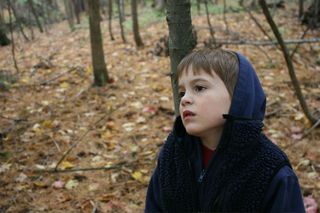How to Tell a Story that is More Interesting than TV or Video Games
This one is easy. Just tell a story.
Really. I am not commenting on the quality of TV or video games. There is some intelligent, well produced, thoughtful content out there. Video games are spellbinding and not all of them are violent and full throttle.
And truly, regardless of the quality of the content, both media are dazzling and seductive and addictive. At least they are for me and my family. When the TV is on at someone’s house, my eyes go to it. I see my kids go into a trance watching someone wash their car or tell us about the weather. It doesn’t have to have zooming and zipping special effects or lots of quick cuts. The screen can have a person standing by a map and telling us where Cambodia is and our whole family will drop their jaws and stare.

So with that reality in mind, coupled with the production value of TV and video games today – you would think that storytellingwouldn’t have a chance. But the truth is, stories win. They always win. Kids know things in their bones. One of them is that they need water. Another is that they need sleep. And another is that they need stories. The purer the better.
So when I say storytelling, I am not necessarily talking about CDs of well produced, musically augmented, dynamic and fast paced recordings of famous people telling classic tales. That breed of storytelling is entertaining and dazzling – especially for adults – but kids actually prefer the stripped down, simple, slow kind of storytelling.
One voice, speaking with intention, painting a clear picture and gently leading you through a landscape is mesmerizing and satisfying in a way that TV and video games could never touch. When this kind of story is over, kids sigh with genuine contentment and authentic satisfaction. They are often quiet for a while afterward, looking out the window or staring at a fire. They digest a story gently told like they digest milk and honey.
So I can get into specifics and technique, but none of them are useful unless you are actually telling stories. So start. Tonight. Ask if your child if they would like you to tell a story – make one up. And really listen to their response. That will give you a clue as to how important storytelling is to them.
About the authors
-

David Sewell McCann
Story SpinnerDavid Sewell McCann fell in love with spinning stories in first grade – the day a storyteller came to his class and captured his mind and imagination. He has been engaged in storytelling all of his adult life through painting, film-making, teaching and performing. Out of his experience as a Waldorf elementary class teacher and parent, he has developed a four step method of intuitive storytelling, which he now shares through workshops and through this website.



